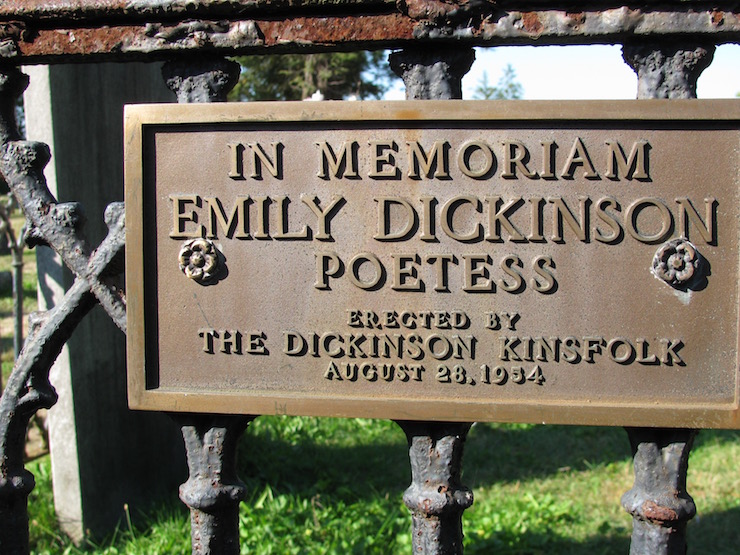< Return to Emily Dickinson Poems
XXIX. The One That Could Repeat the Summer Day
The one that could repeat the summer day
Were greater than itself, though he
Minutest of mankind might be.
And who could reproduce the sun,
At period of going down —
The lingering and the stain, I mean —
When Orient has been outgrown,
And Occident becomes unknown,
His name remain.
-Emily Dickinson
Enjoy Artistic Representations of “The One That Could Repeat the Summer Day” by Emily Dickinson
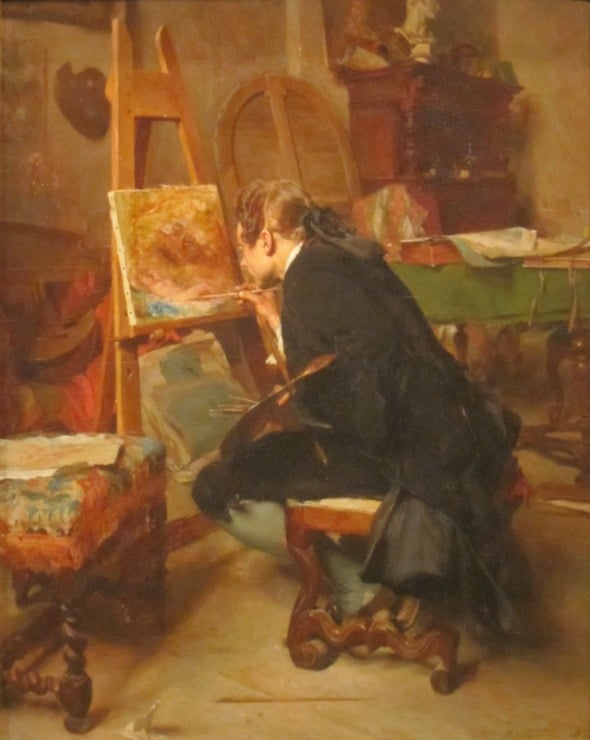
A Painter by Ernest Meissonier, 1855.
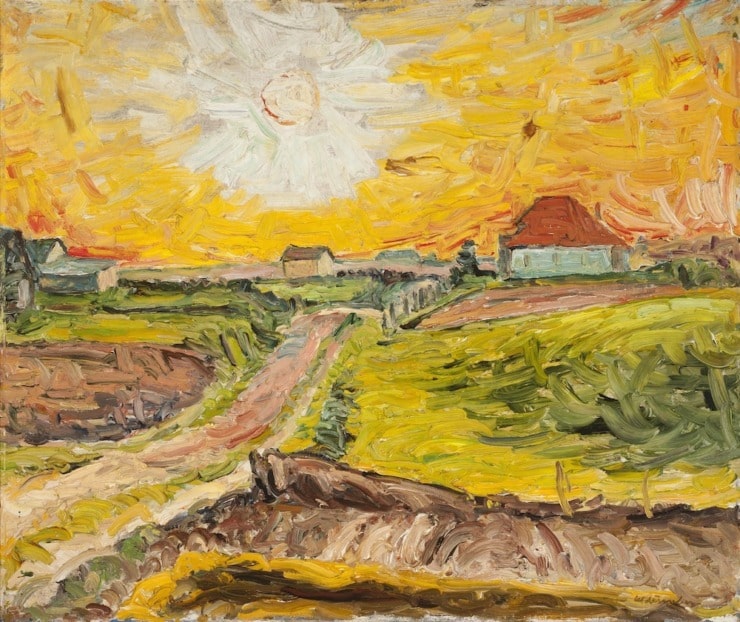
Summer Sun by William Lönnberg, early 20th century.
Listen to this Reading of “The One That Could Repeat the Summer Day”
Listen to this Musical Interpretation of “The One That Could Repeat the Summer Day” by Emily Dickinson
About Emily Dickinson
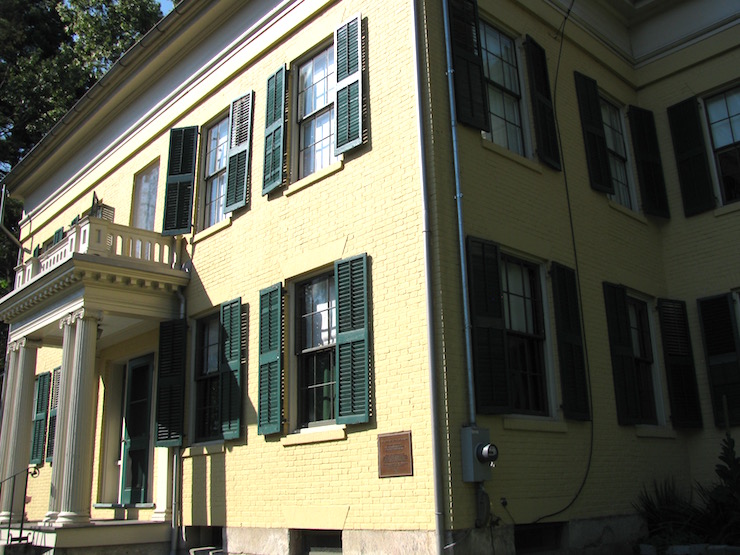
Emily Dickinson estate in Amherst Massachusetts
Emily Dickinson was born in Amherst, MA, in 1830, the daughter of state and federal politician Edward Dickinson. A prolific poet, Dickinson was known to draft poems on the backs of envelopes and chocolate wrappers. Nearly 1800 of her poems were discovered by her family following her death, many in 40 handbound volumes she had sewn together, written in her own hand with her famously unorthodox punctuation.
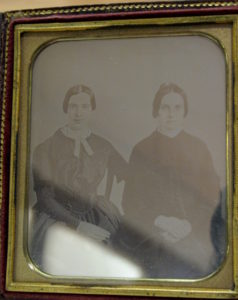
Emily Dickinson & Susan Gilbert
The enigmatic poet is remembered as a recluse, rarely leaving the Dickinson estate. While she did receive callers at her home, conversations were often held from opposite sides of a closed door.
She lived with her sister, Lavinia, while her brother Austin and his wife, Susan Gilbert, lived down a narrow path on the property. Her writing reflects profound loneliness as well as a deep capacity for love and affection, much of which is believed to have been shared with Gilbert.
Her first collection of poems, Poems by Emily Dickinson, was published four years after her death, with Poems: Second Series and Poems: Third Series following in the next several years.
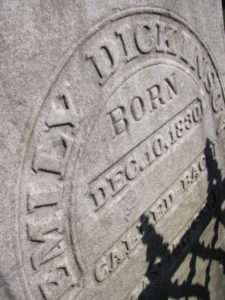
“Called Back”
Like Walt Whitman (who she reportedly never read), she is considered one of the most influential poets in the emergence of a distinctly American poetic voice.
She was born on December 10, 1830, and today visitors to Emily Dickinson’s grave can witness a lasting image of her perspective on life. The etching on her stone marking the date of her death—May 15, 1886—bears the words “Called Back.”
< Return to Emily Dickinson Poems
